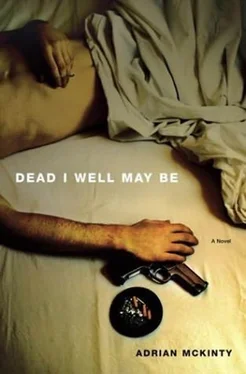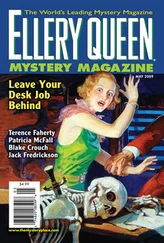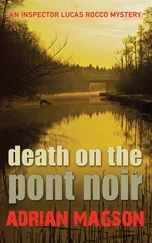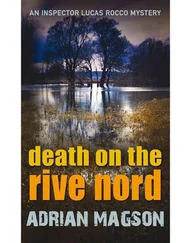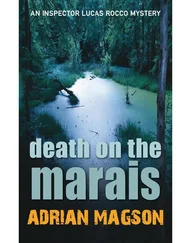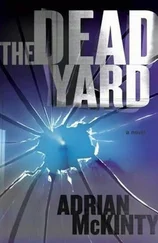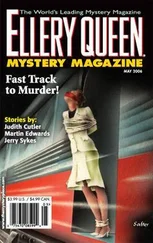I’d gotten a job at Carl’s through Freddie, our mailman, while I was waiting for an interview with the famous Sunshine and Darkey White. Scotchy had found me a place but had let me starve on the street until Sunshine had finally said that I was Darkey White material. Freddie had said that I’d be quite the star at Carl’s as the one white busboy within ten blocks.
I went over there at lunchtime hoping that I wouldn’t stand out in the bigger crowd.
Crowd. Two guys in separate booths, a barman, and a girl drunk at a stool next to a jukebox. It was a dark place, no width to it at all, just a long bar and a few tables opposite and at the back the closed-down stage, some booths, and a bathroom. No bathroom for women, no decorations except for a few mirrors and a fight poster.
I’d like a beer, I said, and the barman said that if I was a tourist I’d better get out of here and if I wasn’t a tourist and I was looking for trouble, he carried, with police approval, a sawed-off shotgun within reach of where he was standing right now.
I said that I wasn’t a tourist and I didn’t want trouble, just a beer. He took a look at me and poured me a Budweiser, almost all head, and asked for five dollars.
I must have been slightly cut that day because I said to him that I’d give him the five dollars but I wanted a proper beer for my money. We eyed each other. He was an old black guy who looked a lot like Miles Davis, though a little paunchier. After a long minute, he grinned at me and poured me a beer and said that the charge was two bucks. We chatted about American football (of which I know nothing) and when he said would I like another, I came to it.
Listen, Jim, I said (for such was his name), I know times are tough but I need a job. I worked bar many times in New York and I’ve worked bar in Ireland for years and years. I’m a good worker and honest and I’ll take any shift you want. I was here at the beginning of the year when this place was still Carl’s.
Jim laughed.
Yeah, man, we need a lot of staff right now to cope with the big rush.
I laughed too. But even though it was almost noon, the daughters of Nyx were still in my corner. I gave him my address and sure enough, as luck would have it, that very day his relief barman quit because he’d just gotten the lucrative understudy job for Macavity the Mystery Cat in a touring version of the show.
Jim came by my place and the Jamaican guy on two nearly shot him, and I ran down and almost brained the Jamaican and but for the fact that he was new in the mainland Americas and still unsure of our ways, he surely would have fucking killed the pair of us. Rather, we solved the situation with rum in his apartment, which was a lot nicer than mine, and Jim gave me the job.
It sure would be a novelty having a white boy keeping bar, and I seemed like I was sincere and trustworthy. He asked if I had any dependency issues and I said that I took too much Tylenol for pains in my leg, and he laughed and said that I might be ok; he did add if I ever tried to rip him off he’d hunt me down and castrate me. The job was Thursday, Friday, and Saturday nights and two dollars an hour, plus tips.
The place didn’t exactly fill up at the weekends, but the Apollo crowd brought some business and with tips I was bringing in forty dollars a night, which wasn’t bad at all. I took a ribbing and much shite the first night, but by the third I was old news and the abuse was perfunctory and dull. On my very first shift, Jim and I threw out a crack addict who ran in with a bread knife in a pathetic attempt at a holdup.
I was a good barman and Jim liked having me around but, like I say, I wasn’t there long since my stint effectively ended when I was offered a more lucrative position in Ramón’s organization. It happened like this:
I was in the bar one night when a group of Dominican boys came in. There were six of them. If you were Dominican you only came into this bar in numbers. Definitely a crew: watchful eyes, polo shirts, Miami Vice pastel jackets, cashmere coats that dragged on the ground. Mr. T would have envied the gold chains about their necks. They were all packing, and two of them had big muscle jobs that everyone realized could spray havoc and death with gay abandon if that proved necessary, which it wouldn’t when you considered that the average age of our clientele was about sixty-five.
They ordered Mexican beers and took a table at the back. They were smart boys and weren’t looking for trouble. I wasn’t to know then, but Jim had started paying off to them. They were trying to expand their territory from Washington Heights down into Harlem, along Broadway and Amsterdam. Jim had heard bad things about them, but they kept the cost low enough so a dodgy business like Jim’s could pay off without too much hurt.
The boss was a little man called Ramón Borges Hernández. Five six, olive skin, handsome, bald, poised, heavy. He looked forty but was younger.
I learned later that Ramón grew up in Santo Domingo and had come to New York about five years earlier. He had many cousins in Washington Heights and within days of his arrival they’d set him up as part of a crew. He was arrested three times and with the third they threw something at him that stuck and he spent some time in Rikers Island. Rikers then wasn’t like Rikers now. Even among the Dominican inmates there were daily fights, stabbings, and shit-kicking sessions. And across ethnic and gang lines: rapes, castrations, shank murders. You got an education, and if you survived, you got a reputation and made connections.
Ramón got out of Rikers and was deported to the Dominican Republic under some crazy new get-tough policy, but it didn’t take him long to get himself a new passport and a new look, and he was about to head back to America when he got in some unspecified bother and went to prison in, of all places, Haiti. I assume he was smuggling something, but neither Ramón nor anyone else ever spoke about that time. Probably my little portion of Mexican hell was as nothing compared to Ramón’s fourteen months in Port-au-Prince.
Still, sometimes, suffering builds character (though not in my case) and when Ramón did come back to Manhattan he was newly invigorated and determined to make the upper city his. He joined a crew working east of St. Nicholas Park and was doing ok for himself until he was arrested and ended up again in Rikers Island. This time, though, he’d been lifted under a lucky star.
If you are the type of person who believes in synchronicity or the power of coincidence or chaos theory or Jungian collective unconscious or other bollocks like that, it might be instructive to learn just how Ramón’s luck changed and the small but important role I played in reversing Fortune’s wheel. Vanna White wouldn’t be in it, I tell you. I didn’t realize it then, but Ramón’s and my path had crossed inadvertently twice before. Once when Ramón gave encouragement to Dermot Finoukin’s foolishness and once with Mr. Peter Berenson, the Eastern European gentleman with Santa trouble. I think I said earlier that all this might be seen as a bit flukey, but if Ramón were still alive I’d have said no, it wasn’t a fluke, it was some Ramónian magical cadence that meant he knew me before he knew me. But, actually, poor Ramón was no magician, at least not magician enough to stop Moreno Felipe Cortez from shooting him nineteen times (that means more than one clip) the year after I left New York. Anyway, that was all still to come, and for the moment, it’s diverting to see how Ramón made that jump from Triple-A into the Major Leagues.
Ramón was sent to Rikers and he got to know a black Colombian guy from the Bronx called Bill. Blacks and Dominicans didn’t pal around much, but Ramón was a charmer and had a knack for spotting talent. Bill, it turned out, was an important middleman meeting mules at JFK and holding the product while deals were done. He had several things going at once, including babying a large quantity of cocaine for a Colombian terror group’s drug arm. All he had to do was hold it and keep his mouth shut. Simple. But Bill was also a bit of a fuckup and had somehow punched a cop at (of all heaven’s holy fucking places) the Puerto Rican Day Parade. Bill was on a warrant and went to jail and through that he lost his apartment in Riverdale. They wanted Bill out of the building because he was black and Colombian, but heavying him out would look bad at landlord-and-tenant court. Fortunately for them, Bill was now in prison and couldn’t (or forgot to) pay his rent (he had a few places), so they kicked him out and put in Mr. Peter Berenson, who had wanted to move from the ground floor to the fourth floor to get a view of Van Cortlandt Park.
Читать дальше
